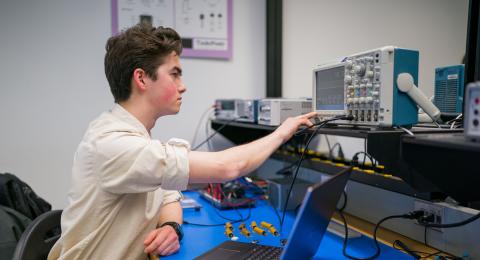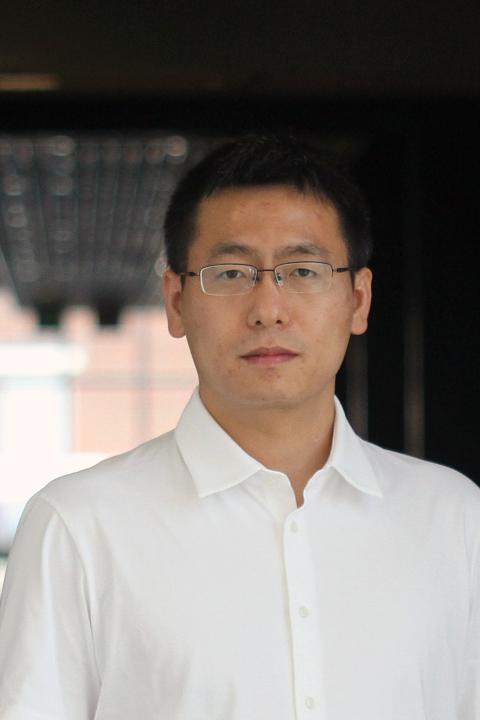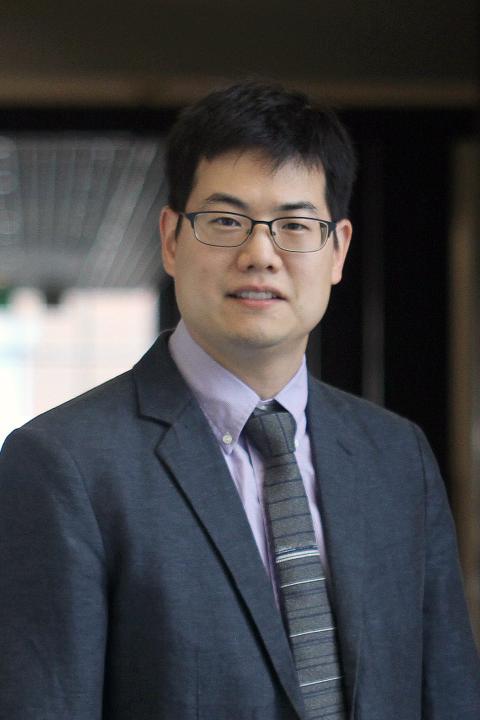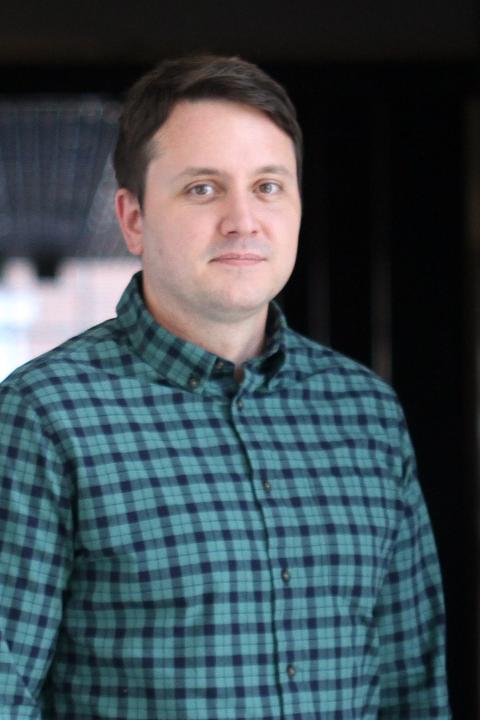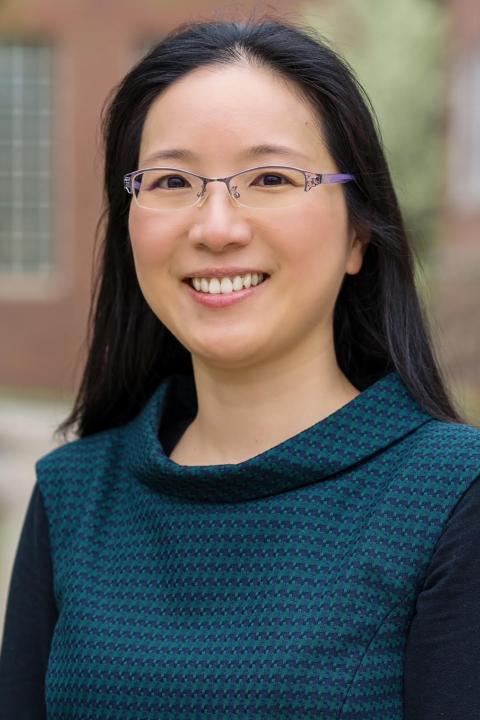The Computer Engineering major at UNH empowers you to shape the future by exploring electronics systems intertwined with software. Here, you’ll dive into the essentials of electrical circuits and their software-driven control with our engaged faculty, developing expertise in digital systems design, embedded systems, and computer architecture. You can also take advantage of research opportunities and paid internships at the renowned UNH Interoperability Lab, a leader in data network testing that works with some of the top technology companies in the world. These experiences are designed to give you the skills and technological expertise needed to succeed in graduate studies or a variety of growing career fields such as cybersecurity, robotics and more.
What is a Bachelor of Science in computer engineering?
This program is tailored to students who want to understand and participate in the engineering discipline that merges electronics systems with software. Students learn the fundamental concepts of electrical circuits and how those circuits can be controlled by software, gaining skills and technological expertise needed to succeed in graduate studies or a variety of career fields.
Why study computer engineering at UNH?
You’ll work in a hands-on laboratory environment that reinforces traditional classroom learning while providing the real-world skills valued by employers. Seniors choose from a suite of professional technical electives and carry out a capstone design project tailored to their career objectives. You can complete an accelerated master’s program, participate on competitive teams at national competitions and gain hands-on experience at the UNH InterOperability Lab, where you’ll work alongside top tech companies to test their networking equipment before it hits the market. This program has a high placement rate because of its great reputation among industry employers.
Potential Careers
- Advanced manufacturing
- Aerospace and defense
- Automotive and Manufacturing industries
- Biomedical engineering
- Embedded computer systems
- Integrated circuits and systems design industries
- Internet of Things (IoT)
- Medical IoT
- Robotics and Artificial Intelligence
- Telecommunications Industries
Curriculum & Requirements
This program is tailored to students who want to understand and participate in the engineering discipline that merges electronics systems with software. Students learn the fundamental concepts of electrical circuits and how those circuits can be controlled by software, gaining skills and technological expertise needed to succeed in graduate studies or a variety of career fields.
In addition to the university's mandatory Discovery Program requirements, degree candidates must complete our core program (freshman through junior years). In the senior year, students select professional technical electives in the areas of their interest. They also carry out a student-designed project to acquire both breadth and depth of study and to integrate knowledge across course boundaries.
The Computer Engineering (B Sci in Computer Engineering) program is accredited by the Engineering Accreditation Commission of ABET, https://www.abet.org, under the General Criteria and the Program Criteria for Electrical, Computer, Communications, Telecommunication(s) and Similarly Named Engineering Programs.
Sample Degree Plan
This sample degree plan serves as a general guide; students collaborate with their academic advisor to develop a personalized degree plan to meet their academic goals and program requirements.
| First Year | ||
|---|---|---|
| Fall | Credits | |
| ECE 401 | Perspectives in Electrical and Computer Engineering | 4 |
| CS 410C | Introduction to Scientific Programming/C | 4 |
| MATH 425 | Calculus I | 4 |
| ECON 402 or NR 411 | Principles of Economics (Micro) 1 or Environmental and Resource Economics Perspectives | 4 |
| Credits | 16 | |
| Spring | ||
| PHYS 407 | General Physics I | 4 |
| CS 419 | Computer Science for Engineers and Scientists | 4 |
| MATH 426 | Calculus II | 4 |
| ENGL 401 | First-Year Writing | 4 |
| Credits | 16 | |
| Second Year | ||
| Fall | ||
| ECE 541 | Electric Circuits | 4 |
| ECE 543 | Introduction to Digital Systems | 4 |
| MATH 527 | Differential Equations with Linear Algebra | 4 |
| PHYS 408 | General Physics II | 4 |
| Credits | 16 | |
| Spring | ||
| ECE 548 | Electronic Design I | 4 |
| ECE 562 | Computer Organization | 4 |
| MATH 645 | Linear Algebra for Applications | 4 |
| Discovery Program Category | 4 | |
| Credits | 16 | |
| Third Year | ||
| Fall | ||
| ECE 602 | Engineering Analysis | 3 |
| ECE 633 | Signals and Systems I | 3 |
| ECE 583 | Designing with Programmable Logic | 6 |
| Discovery Program Category | 4 | |
| Credits | 16 | |
| Spring | ||
| ECE 603 | Electromagnetic Fields and Waves I | 3 |
| ECE 647 | Random Processes and Signals in Engineering | 3 |
| ECE 634 | Signals and Systems II | 3 |
| ECE 649 | Embedded Microcomputer Based Design | 6 |
| Discovery Program Category | 4 | |
| Credits | 19 | |
| Fourth Year | ||
| Fall | ||
| ECE 791 | Senior Project I | 3 |
| Two Professional Electives 2 | 8 | |
| Discovery Program Category | 4 | |
| Credits | 15 | |
| Spring | ||
| ECE 792 | Senior Project II | 3 |
| Two Professional Electives 2 | 8 | |
| Discovery Program Category | 4 | |
| Credits | 15 | |
| Total Credits | 129 | |
- 1
Students are required to take either ECON 402 Principles of Economics (Micro) or NR 411 Environmental and Resource Economics Perspectives to fulfill the Social Science Category of the Discovery Program.
- 2
Four professional electives must be selected as follows:
- Choose two ECE 7XX courses, one course could be ECE 652 Electronic Design II.
- Students are allowed to take only one as ECE 795 Electrical and Computer Engineering Projects or ECE 796 Special Topics.
- Remaining professional electives can include: CS 619 Introduction to Object-Oriented Design and Development , CS 620 Operating System Fundamentals, CS 659 Introduction to the Theory of Computation, or any CS 7XX course.
ECE 791 Senior Project I and ECE 792 Senior Project II fulfill Discovery Program Capstone Experience.
Fulfilling the CE program curriculum taking ECE 401 Perspectives in Electrical and Computer Engineering, ECE 791 Senior Project I, and ECE 792 Senior Project II will automatically meet Discovery Category, "Environment, Technology and Society."
Degree Requirements
All Major, Option and Elective Requirements as indicated.
*Major GPA requirements as indicated.
Major Requirements
In addition to Discovery Program requirements, the department has a number of grade-point average and course requirements:
- Any computer engineering major whose cumulative grade-point average in ECE and CS courses is less than 2.0 during any three semesters will not be allowed to continue as a computer engineering major.
- Computer engineering majors must achieve a 2.0 grade-point average in all ECE and CS courses as a requirement for graduation.
To make an exception to any of these departmental requirements based on extenuating circumstances, students must petition the department's undergraduate committee. Mindful of these rules, students, with their advisor's assistance, should plan their programs based on the distribution of courses found in the Degree Plan tab.
| Code | Title | Credits |
|---|---|---|
| Required Courses | ||
| CS 410C | Introduction to Scientific Programming/C | 4 |
| CS 419 | Computer Science for Engineers and Scientists | 4 |
| ECE 401 | Perspectives in Electrical and Computer Engineering | 4 |
| ECE 541 | Electric Circuits | 4 |
| ECE 543 | Introduction to Digital Systems | 4 |
| ECE 548 | Electronic Design I | 4 |
| ECE 562 | Computer Organization | 4 |
| ECE 583 | Designing with Programmable Logic | 6 |
| ECE 602 | Engineering Analysis | 3 |
| ECE 603 | Electromagnetic Fields and Waves I | 3 |
| ECE 633 | Signals and Systems I | 3 |
| ECE 634 | Signals and Systems II | 3 |
| ECE 647 | Random Processes and Signals in Engineering | 3 |
| ECE 649 | Embedded Microcomputer Based Design | 6 |
| ECON 402 | Principles of Economics (Micro) | 4 |
| or NR 411 | Environmental and Resource Economics Perspectives | |
| MATH 425 | Calculus I | 4 |
| MATH 426 | Calculus II | 4 |
| MATH 527 | Differential Equations with Linear Algebra | 4 |
| MATH 645 | Linear Algebra for Applications | 4 |
| PHYS 407 | General Physics I | 4 |
| PHYS 408 | General Physics II | 4 |
| Capstone 2 | ||
| ECE 791 | Senior Project I | 3 |
| ECE 792 | Senior Project II | 3 |
| Professional Electives | ||
| Choose four professional elective courses 1 | 16 | |
| Other Courses | ||
| Discovery requirements not already covered by required courses 2 | 24 | |
| Total Credits | 129 | |
- 1
Four professional electives must be selected as follows:
- Choose two ECE 700-level courses, one course could be ECE 652 Electronic Design II.
- Students are allowed to take only one as ECE 795 Electrical and Computer Engineering Projects or ECE 796 Special Topics.
- Remaining professional electives can include: CS 619 Introduction to Object-Oriented Design and Development CS 620 Operating System Fundamentals, CS 659 Introduction to the Theory of Computation, or any CS 700-level course.
- 2
Fulfilling the CE Program curriculum taking ECE 401 Perspectives in Electrical and Computer Engineering, ECE 791 Senior Project I, and ECE 792 Senior Project II curriculum will automatically meet Discovery Category, "Environment, Technology and Society."
The Department of Electrical and Computer Engineering has adopted a set of student outcomes that consists of statements describing what students are expected to know and be able to do by the time of graduation, the achievement of which indicates that the student is equipped to achieve the program objectives.
The current student outcomes are:
- An ability to identify, formulate, and solve complex engineering problems by applying principles of engineering, science, and mathematics.
- An ability to apply engineering design to produce solutions that meet specified needs with consideration of public health, safety, and welfare, as well as global, cultural, social, environmental and economic factors.
- An ability to communicate effectively with a range of audiences.
- An ability to recognize ethical and professional responsibilities in engineering situations and make informed judgments, which must consider the impact of engineering solutions in global, economic, environmental, and societal contexts.
- An ability to function effectively on a team whose members together provide leadership, create a collaborative and inclusive environment, establish goals, plan tasks, and meet objectives.
- An ability to develop and conduct appropriate experimentation, analyze and interpret data, and use engineering judgment to draw conclusions.
- An ability to acquire and apply new knowledge as needed, using appropriate learning strategies.
Explore Program Details
Those interested in the Computer Engineering major may also be interested in the following advanced degrees. Students in the program also have the opportunity to participate in the UNH accelerated master’s program.
Electrical & Computer Engineering M.Eng.
Electrical & Computer Engineering M.S.
Electrical & Computer Engineering Ph.D.
Electrical & Computer Engineering: Biomedical Engineering M.S.
